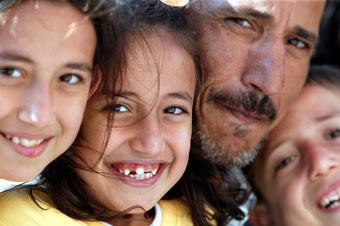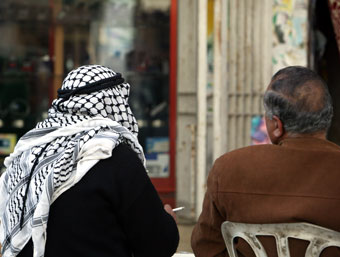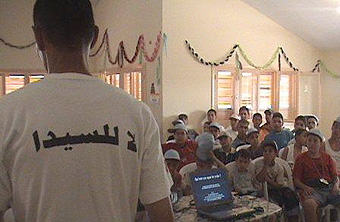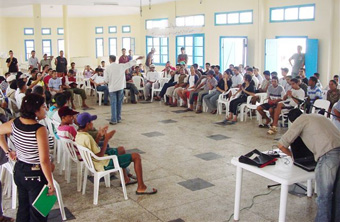Although the main mode of HIV transmission in the Middle East and North Africa remains unprotected sexual contact, injecting drug use is an increasingly important factor in the region’s epidemics.
The spread of HIV among drug users appears to be closely related to evolving patterns of drug use in the region in recent decades. Evidence suggests increase in number of drug users, decrease in the age at first use of drugs and some indication of an increased percentage of women using drugs in several countries.
The United Nations Office of Drugs and Crime (UNODC) estimates there are 400,000 injecting drug users in Arab countries and approximately 200,000 in Iran. These figures do not include a recent increase in numbers in Afghanistan which have been observed.
The sharing of contaminated injecting equipment among injecting drug users has become the predominant route of HIV infection in at least two countries since the mid to late 1990s – Iran and Libya –where a concentrated epidemic now appears to be well established.
“This is a real and growing issue for countries in the Middle East and North Africa. And although we are seeing increasing willingness to introduce HIV prevention and treatment programmes for drug users, focused efforts are needed urgently to ensure access to services for all drug users and their partners,” said Oussama Tawil, Director of UNAIDS’ Regional Support Team, Middle East and North Africa.
Over the last years, UNAIDS and UNODC have supported assessments on drug use and HIV-related risks in Algeria, Egypt, Libya, Morocco, as well as in Oman and Syria, as part of efforts to better understand trends and dynamics of the epidemics in the region and to increase HIV prevention efforts.
Main findings ensued suggest that needle sharing, ranging from 40 to 60%, coupled with low knowledge on AIDS, limited access to health and HIV-related services, stigma and discrimination, and other associated risk factors, are among some of the challenges faced by the region to reduce HIV risks and vulnerability among injecting drug users.
Within the assessments, researchers spoke to drug users about their thoughts and fears: “If I enter [a treatment center] I'll be marked, and my future is over. I will not be able to do anything, neither work nor life," said one of the participant.
“Drug use and other risk behaviors remain stigmatized in the region, which is why we must forge strong partnerships with different sectors, such as the national AIDS programmes, non-governmental organizations, drug users, people living with HIV and law enforcement agencies, to be able to better understand the epidemic and implement concrete solutions,” said Mr Tawil.
Foundations for an increased response to address HIV risks and vulnerability among drug users have been established in some countries and are underway in others. In Iran – considered a global best practice model – HIV-related initiatives for injecting drug users inside and outside prisons are now being scaled up beyond the pilot levels.
In an example of a bold movement to better tackle the issue of HIV and drug use in the region, representatives from law enforcement agencies, national AIDS programmes, NGOs, researchers, community representatives, people living with HIV, UN organizations and other partners will join at a regional workshop to be held in Cairo, Egypt from 5 – 8 November.
The workshop— “Towards Implementation of a Comprehensive HIV response and AIDS Response Among Drug Users in the Middle East and North Africa”— convened by UNAIDS and its cosponsors UNODC and the World Health Organization (WHO) as well as the German Technical Coorperation (GTZ), will welcome participants from 16 countries and aims to build capacities on programming and implementing HIV prevention, treatment and care interventions among drug users.
As part of the workshop, UNAIDS and UNODC will launch the finalized Rapid Situation Assessment on Drug Use and HIV in Algeria and Morocco, as well as facilitate consensus on programmatic follow up for all participating countries. WHO and the International Harm Reduction Association will also launch the project on strengthening the role of civil society in harm reduction for injecting drug users in the Middle East and North Africa.
“This gathering bringing together wide diversity of partners is unique for the region and a turning point for action on drug use and HIV in the region” Mr. Tawil said.








